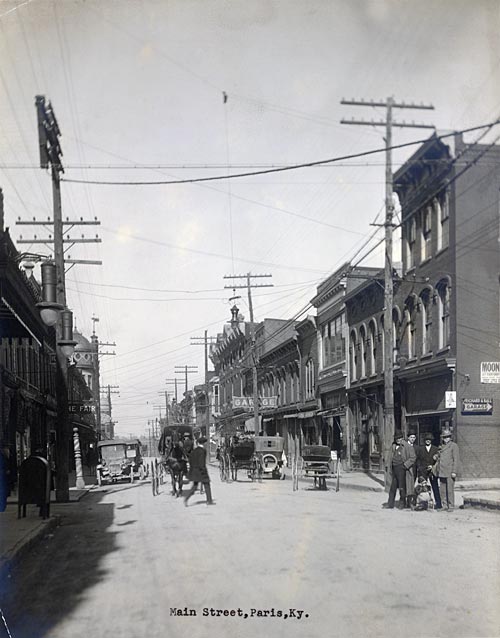In "an act to regulate the running of motor vehicles upon the public highways on this State, and fixing a penalty for the violation
thereof," which became a law without action by the governor on March 26, 1904, the General Assembly attempted to come to terms with
the emerging mode of transportation. Much of the regulating details was concerned with the relation of the horseless carriage and the
horse with a good deal of attention being paid to the importance of operating motor vehicles in such a way as to avoid startling horses
and causing accidents. Drivers were always to give warning when approaching "horses or other draft animals" by signaling "with a horn,
bell or other device not calculated to frighten such animals." Horses and horse-drawn carriages were to be given the right of way.
No one was to operate a motor vehicle "on a public highway at a rate of speed greater than is reasonable and proper at the time and place"
or "in any event at a greater rate than 15 miles an hour." Bridges, curves, and intersections were to be approached "at a rate of speed no
greater than six miles an hour."

Automobiles and horse-drawn carriages coexisted on Main Street, Paris, Kentucky. C. Frank Dunn Collection, Kentucky Historical Society Collections.
